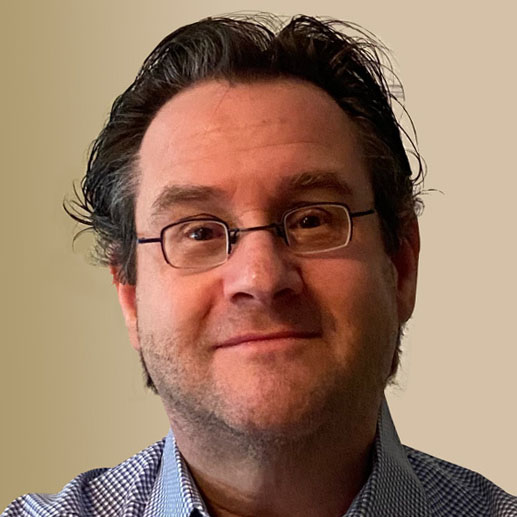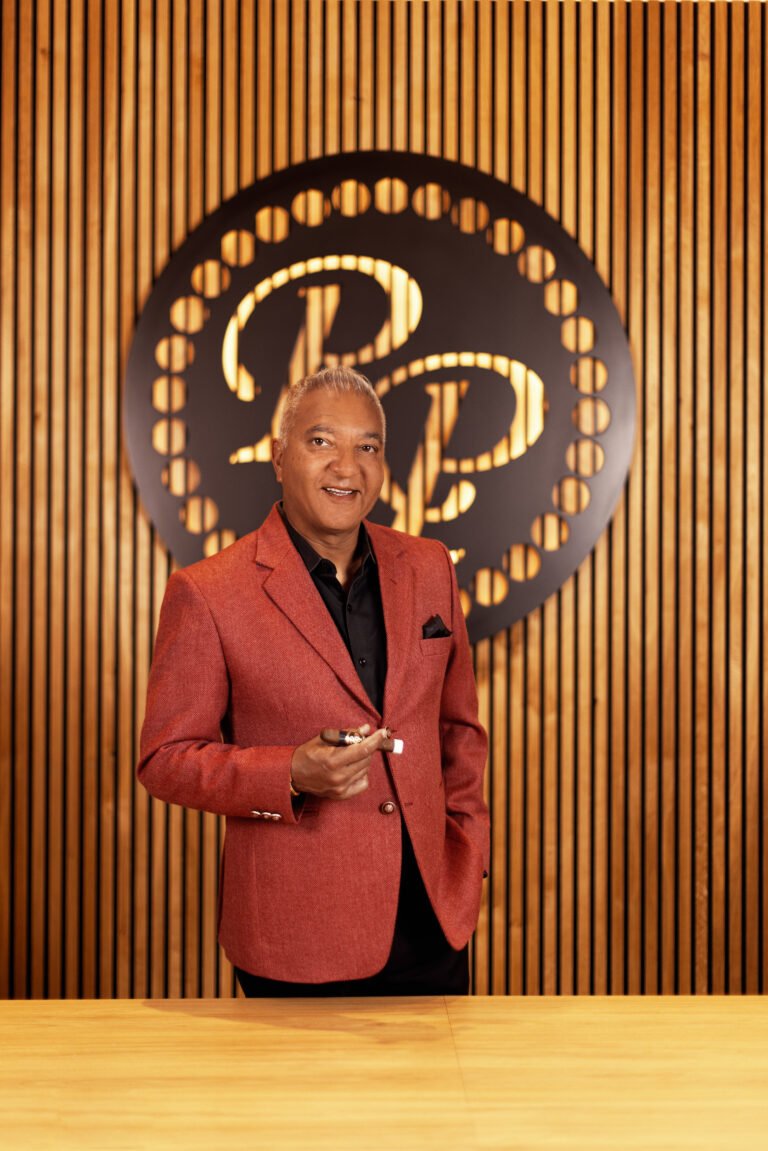In 2022, Cigar Aficionado rated the Rocky Patel “Sixty” the No. 1 cigar in the free world. That’s a remarkable feat. The industry’s preeminent publication considers about 700 cigars for its annual survey, and its reviewers do not know the identity or any other details of the stogies they are smoking.
Rakesh (“Rocky”) Patel, the brand’s president and CEO, credits many things for his success as a cigar maker, including lessons learned from his days practicing law in Los Angeles.
“From the time you plant a seedling in the ground to the time you get a cigar in the box takes four to five years,” Patel tells me in a recent phone interview. “Three hundred different hands touch the tobacco. If you cheat the process along the way, or take any shortcuts, you don’t get the results.”
Patel, 64, says this mirrors the requirements to becoming a successful lawyer. It is about “attention to detail. When you are reading a document or drafting a pleading, you have to be very precise. You have to be perfect.”
From lawyer to cigar maker
Patel’s background makes him an unlikely cigar industry magnate. He was born in New Delhi, India’s capital city in the north, and he grew up on the country’s west coast in Bombay, now Mumbai. In 1974, his family came to the United States, and Patel went to high school in Green Bay, Wisconsin, and then to the University of Wisconsin.
Looking to escape the cold and snow, Patel headed to Los Angeles for law school. But “not wanting to be a starving student,” he says, the would-be lawyer chose Southwestern Law School. This way he could work as a law clerk during the day and attend the evening program.
Law school wasn’t some deep-seated dream for Patel nor inspired by a goal to change the world. His motivation was simpler: “I wasn’t ready to go face the real world.”
He gives credit to the rigor of the evening program for his drive today. “I worked every day in a law firm, and then at five at night, got in my car, tried to eat a sandwich; 6 o’clock started law school, was done at 10 o’clock; and then in the library till 1 o’clock. That work ethic was instilled in me.”
Patel landed at a small firm in Beverly Hills that did entertainment and plaintiff’s product liability work. The office was located close to the Grand Havana Club. It was there that Patel smoked his first cigar and became a founding member of the club.
While there he would be approached to invest in a startup called Indian Tabac Cigar Company. The hook was that the business had a license to trade off the famed Indian Motorcycle Company name. But the business faced all manner of problems—including discovering that there was no such licensing agreement after all.
The business was a black hole for money. “I kept writing checks and kept writing checks and not getting anything back,” says Patel who knew something needed to change. “So, I ended up taking over the company after several years.”
The naysayers were abundant. Cigar businesses are “‘handed down from generation to generation,’” Patel was told. “‘You have to be of Cuban descent. You just can’t get into the cigar business. You’ll never make it.’”
As part of the turnaround, Patel would bring the many steps of cigar making in-house. He recounts an assortment of quality-control problems caused by relying on others in production.
In 2003, with all of the facets of manufacturing now under Patel’s control, it was time to put his name on the cigars. Indian Tabac was now Rocky Patel Premium Cigars.
This year, the company is celebrating three decades in business. In August, its “30th Anniversary” cigar will be released to commemorate the occasion. Patel revealed in a 2022 interview with Cigar Aficionado that he sells nearly 30 million cigars a year in close to 100 countries.
In addition to the “Sixty” getting such high marks from Cigar Aficionado, many of Patel’s other offerings have rated very well in the magazine’s annual “Top 25” list. In 2024, Patel’s “Conviction” came in at No. 7. It carries a $100 price tag.
The publication’s reviewer noted that a high-priced cigar is not always a guarantee of quality. But he says that Patel has pulled it off, writing: “We found the Conviction brilliant, a medium-to-full-bodied cigar that’s a superb performer, delivering an opulent core of cocoa powder and dark chocolate flavor. And it’s a cigar that builds in flavor, getting better and better the longer it is smoked.”
Law degree not going up in smoke
 Rocky Patel’s “Sixty” was rated the No. 1 cigar in the free world in 2022 by Cigar Aficionado. (Photo courtesy of Rocky Patel Premium Cigars)
Rocky Patel’s “Sixty” was rated the No. 1 cigar in the free world in 2022 by Cigar Aficionado. (Photo courtesy of Rocky Patel Premium Cigars)Patel’s cigars are produced in Nicaragua and Honduras where he has tobacco farms and massive factories. Not surprisingly, with an international operation this large, plus headquarters in Naples, Florida, and palatial cigar lounges—Burn by Rocky Patel—in five U.S. cities, I tell Patel I’m sure he’s still getting mileage out of his law degree.
It’s funny I should mention that, Patel says. “About a half hour before this interview, I was reviewing contracts. I’m consistently dealing with lawyers. I’m consistently reviewing contracts,” he shares. “The legal education helps in many, many different parts of what we do. Whether it’s an acquisition. Whether it’s a deal.”
Patel has also had a hands-on role in multiple cases brought over several years by cigar manufacturer and retail groups in the U.S. District Court for the District of Columbia, challenging various attempts by the U.S. Food and Drug Administration to regulate cigars.
Patel tells me that regulations sought to be imposed, which he called “de facto prohibition,” would have cost his company $80 million to comply and wipe out 80% of the premium cigar industry. The challengers have enjoyed tremendous success in their fight, he says.
This includes, earlier this year, the U.S. Court of Appeals for the District of Columbia Circuit affirming a lower court decision, striking down as arbitrary and capricious, FDA regulations addressing sales, promotions and distribution of “premium cigars.” The federal appeals court agreed with the district court that the FDA had not considered evidence that “premium cigars” have fewer adverse health effects than other tobacco products.
Left open in the appeals court’s decision and sent back to the district court to determine is the definition of a “premium cigar.” In general, considerations include the nature of the tobacco, manufacturing process and weight.
Patel shares a story about his early days in business and first trip to Honduras.
“It was the Wild West,” Patel explains. The Contras and Sandinistas had been at war. He recalls that everyone had a weapon on them, and there were landmines to worry about.
One of Patel’s local partners fired several rounds from a gun through his car’s sunroof. “Tat, tat, tat, tat,” he says, imitating the sound.
“This is nuts,” Patel remembers thinking. “He thought it was cool. I didn’t think it was so cool.”
For Rocky Patel, it was a “Toto, I’ve a feeling we’re not in Beverly Hills anymore” moment.

Randy Maniloff is an attorney at White and Williams in Philadelphia and an adjunct professor at the Temple University Beasley School of Law. He runs the website CoverageOpinions.info.
This column reflects the opinions of the author and not necessarily the views of the ABA Journal—or the American Bar Association.

